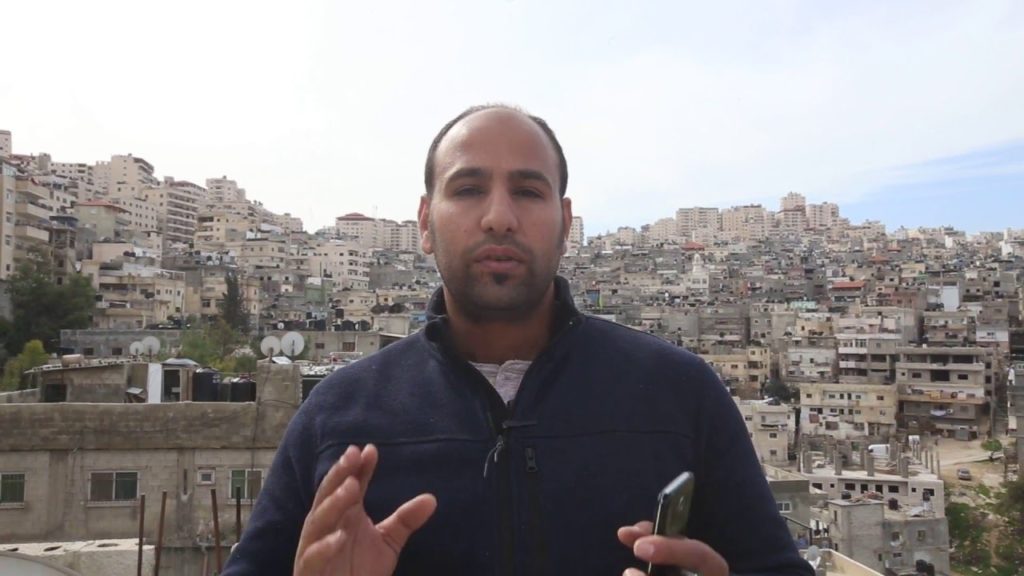FRESH AIR
UPDATES
The death of a Palestinian activist exposes some brutal realities
May 17, 2016 | Gareth Narunsky

PALESTINIAN activist Baha Nababta was passionate about helping his community in the Shuafat refugee camp in east Jerusalem. In addition to being the head of the local volunteer fire department, he helped to pave roads, remove garbage and set up emergency medical services.
For this service to his people, he was brutally murdered last week – apparently because in order to achieve these improvements, he liaised with Israeli authorities.
The 31-year-old married father of two children was shot seven times at 11:30pm on Monday, May 2, before his assailant fled on a motorbike.
According to the Jerusalem Post, Nababta had previously told Israeli Meretz politician Dr Meir Margalit, with whom he worked to improve the infrastructure in Shuafat, that he feared for his life:
“More than once he told me that people in the refugee camp accused him of being a collaborator with Israel,” said Margalit. “That was because in order to solve the problems in the camp, he had to be in contact with the Jerusalem Municipality, the police, Interior Ministry, and other different Israeli institutions.”
“There was no other way to address the problems in this camp without being in touch with the Israeli Government,” continued Margalit, who was shaken by the news of Nababta’s violent death.
Margalit continued:
“It’s terrible, but I guess that the type of message to all Palestinians who work with Israel is stop doing it, or you will end up like Nababta.”
A crime-ridden neighbourhood of 80,000 Palestinians, Shuafat is part of the Jerusalem Municipality but is cut off from the city by the security barrier. Nababta himself discussed the problems of the area in this BBC Panorama documentary (you can see him from 12:37 onwards):
Nababta’s murder was ignored by the Palestinian media, according to Elder of Ziyon.
The Jerusalem Municipality, and Israel itself, are often strongly criticised because the services to Palestinian neighbourhoods of east Jerusalem – especially those beyond the security barrier – are inferior to those in Jewish neighbourhoods (for an example, here’s a report from ACRI, a majority-European-funded left-wing Israel NGO, on the subject). But the horrifying story of Baha Nababta exposes that the problem is more complex than such groups make out.
While there is certainly a case that Israel should be seeking ways to do more to improve services in these areas, it also must be recognised that doing so is immensely complex and difficult. Neighbourhoods like Shuafat are largely controlled by armed gangs of thugs, who often claim to act in the name of Palestinian nationalism, but often behave like regular criminal gangs in other cities. These criminal elements make it very hard for Israeli municipal workers to access these areas safely.
Nor can the municipality work with local community leaders to arrange for services to be delivered – or even to hear about their priorities and attempt to address them – because any contact with Israeli authorities is seen by these armed gangs as “collaboration”, effectively a death sentence.
What both Israel and the residents of east Jerusalem need to fix these problems are more people like Baba Nababta – people whose primary concern is improving the life of residents, not promoting hatred and conflict in the name of ideological purity. Sadly, such people are few and far between – and with Nababta’s murder, are even less likely to run the risks required to constructively upgrade services to their fellow Palestinian residents.
Gareth Narunsky
Tags: Palestinians
RELATED ARTICLES

He survived Bondi. Now he’s fighting back: Arsen Ostrovsky addresses AIPAC conference

US Middle East strategy amid regional instability: Dana Stroul at the Sydney Institute





















